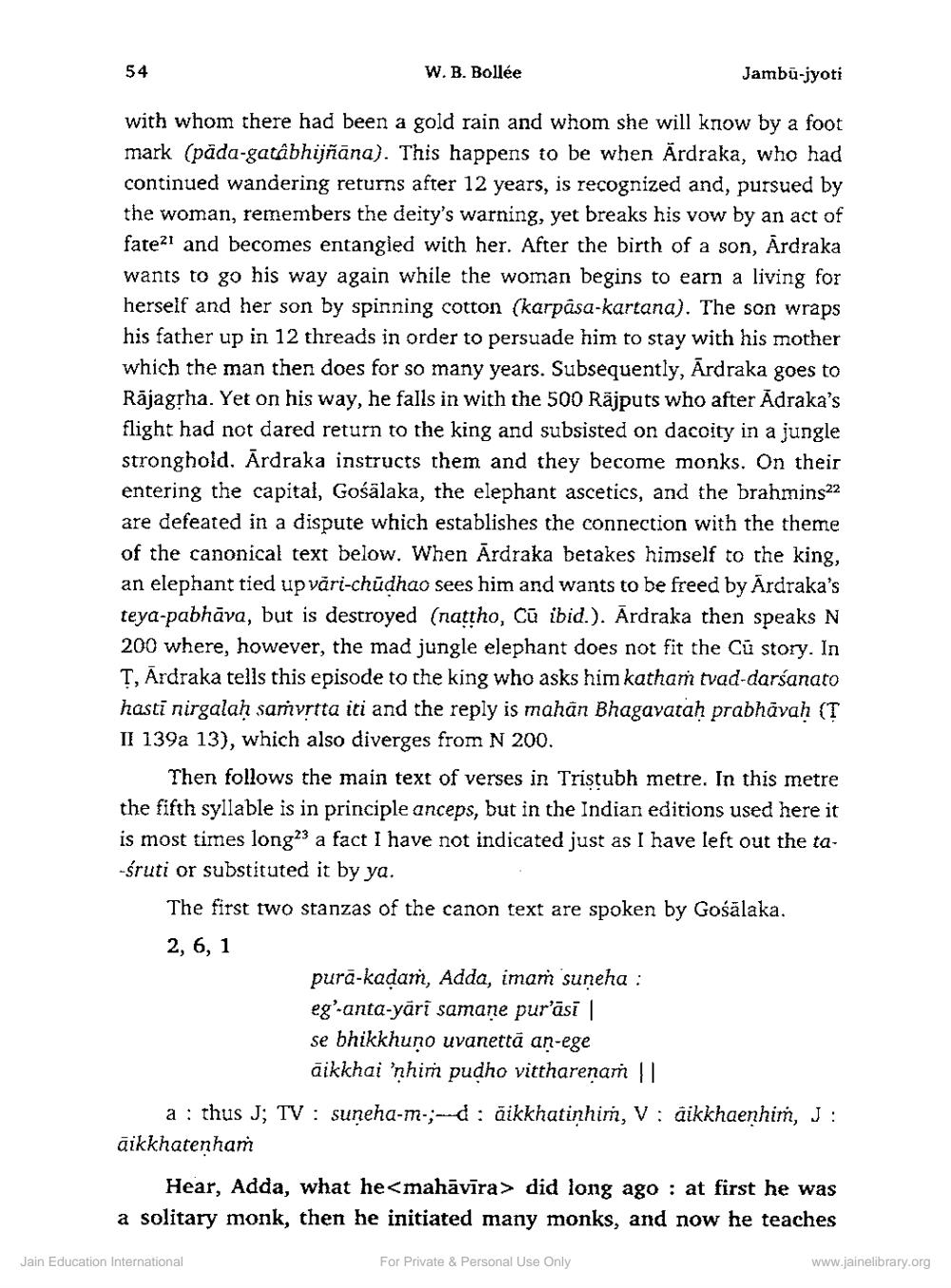Book Title: Adda or Oldest Extant Dispute between Jains and Heretics Author(s): Willem B Bollee Publisher: Z_Nirgranth_Aetihasik_Lekh_Samucchay_Part_1_002105.pdf and Nirgranth_Aetihasik_Lekh_Samucchay_Part_2 View full book textPage 7
________________ 54 W.B. Bollée Jambu-jyoti with whom there had been a gold rain and whom she will know by a foot mark (päda-gatábhijñāna). This happens to be when Ärdraka, who had continued wandering returns after 12 years, is recognized and, pursued by the woman, remembers the deity's warning, yet breaks his vow by an act of fate21 and becomes entangied with her. After the birth of a son, Ardraka wants to go his way again while the woman begins to earn a living for herself and her son by spinning cotton (karpasa-kartana). The son wraps his father up in 12 threads in order to persuade him to stay with his mother which the man then does for so many years. Subsequently, Ārdraka goes to Rājagrha. Yet on his way, he falls in with the 500 Räjputs who after Adraka's flight had not dared return to the king and subsisted on dacoity in a jungle stronghold. Ārdraka instructs them and they become monks. On their entering the capital, Gośālaka, the elephant ascetics, and the brahmins22 are defeated in a dispute which establishes the connection with the theme of the canonical text below. When Ardraka betakes himself to the king, an elephant tied up väri-chudhao sees him and wants to be freed by Ardraka's teya-pabhāva, but is destroyed (nattho, Cū ibid.). Ārdraka then speaks N 200 where, however, the mad jungle elephant does not fit the Cū story. In T, Ārdraka tells this episode to the king who asks him katham tvad-darśanato hasti nirgalah saṁvrtta iti and the reply is mahân Bhagavatah prabhāvah (T II 139a 13), which also diverges from N 200. Then follows the main text of verses in Tristubh metre. In this metre the fifth syllable is in principle anceps, but in the Indian editions used here it is most times long23 a fact I have not indicated just as I have left out the ta-śruti or substituted it by ya. The first two stanzas of the canon text are spoken by Gośālaka. 2, 6, 1 pura-kadam, Adda, imam suneha : eg'anta-yari samane pur'āsi | se bhikkhuno uvanettá an-ege aikkhai 'nhiṁ pudho vittharenam || a : thus J; TV : suneha-m-;-d: õikkhatinhim, V: äikkhaenhim, J: aikkhatenham Hear, Adda, what he<mahāvīra> did long ago : at first he was a solitary monk, then he initiated many monks, and now he teaches Jain Education International For Private & Personal Use Only www.jainelibrary.orgPage Navigation
1 ... 5 6 7 8 9 10 11 12 13 14 15 16 17 18 19 20 21 22 23 24 25 26 27 28 29 30 31 32 33 34 35 36 37
